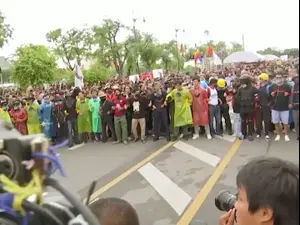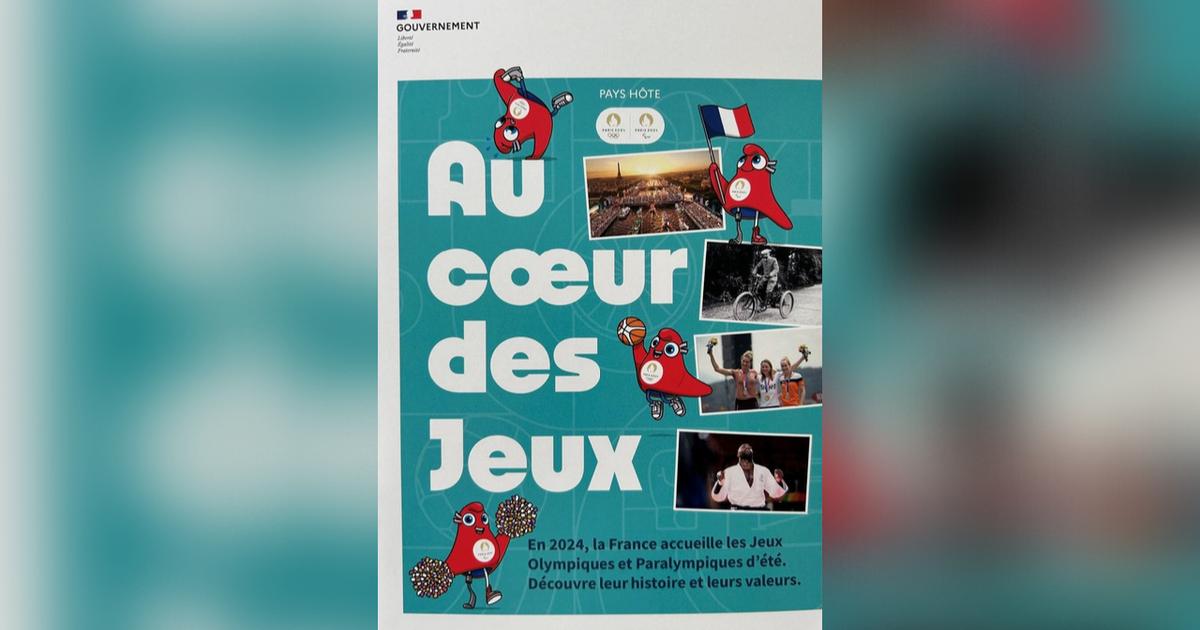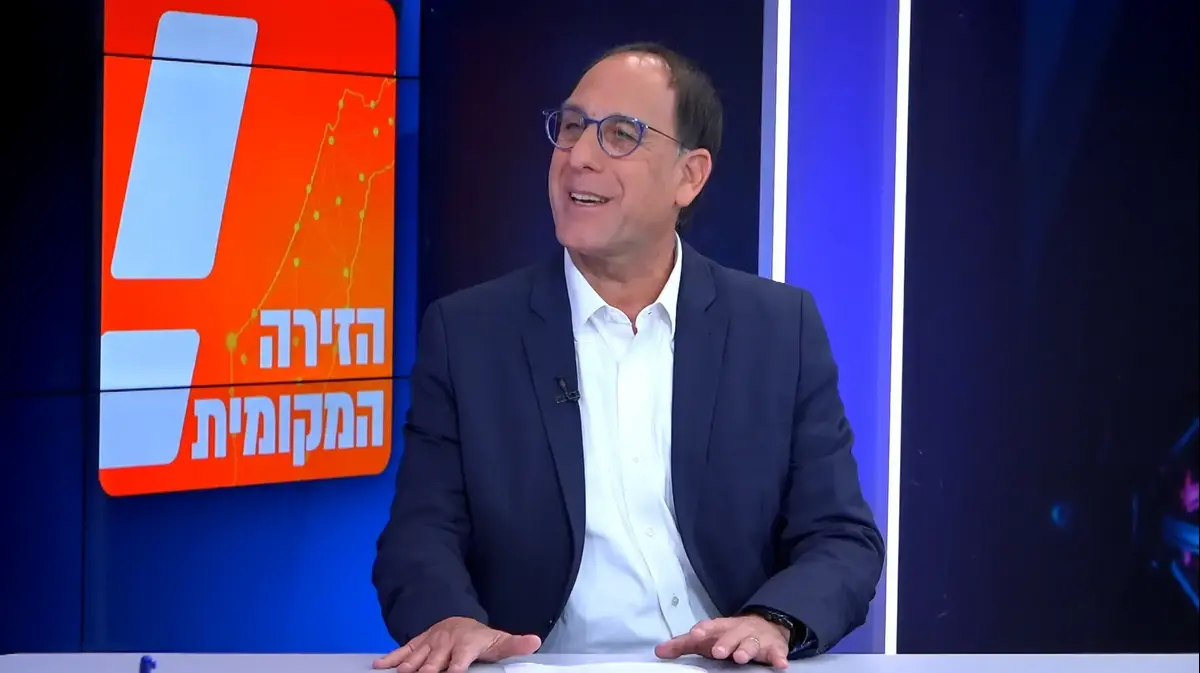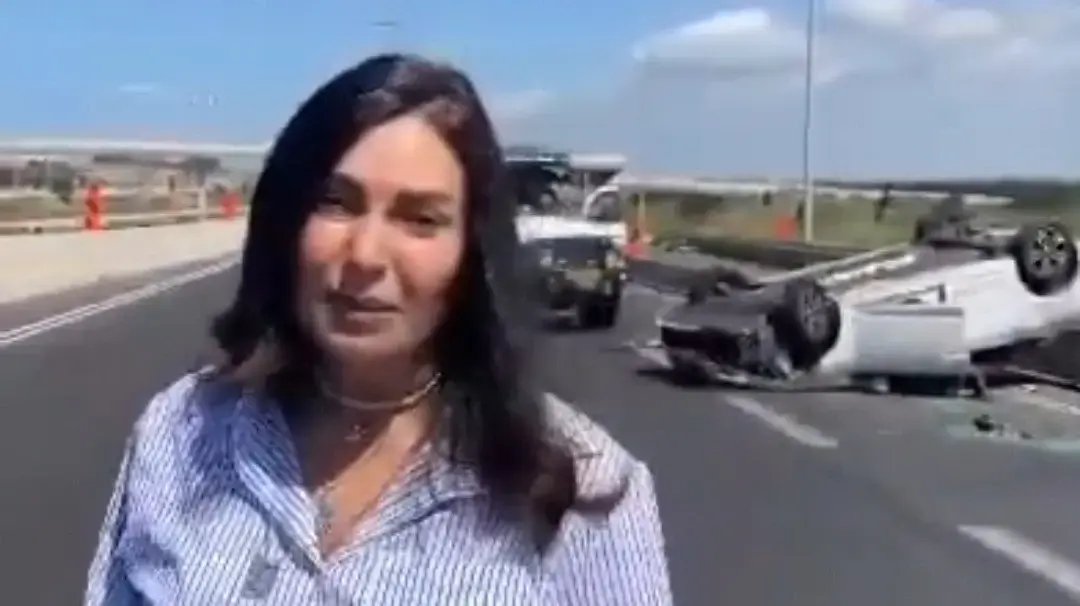news
Corona
Studies in the days of Corona
"The world will not wait for students": The Lost Generation of 2021
The education system has shrunk since the outbreak of the plague, and since then instead of the educational essence, most of the activity has been concentrated in logistics.
Eli Horowitz, an educator and CEO of the Trump Foundation, fears the loss of self-fulfillment in students because of difficulty in getting an education. "There is a future after the crisis, but it needs to be taken care of now."
Tags
The education system
Corona virus
Ministry of Education
Dana Yarkatzi
Sunday, 20 September 2020, 17:04
Share on Facebook
Share on WhatsApp
Share on general
Share on general
Share on Twitter
Share on Email
0 comments
Subject: Trump threatened, and Iran warned the United States against ...
Subject: Thousands demonstrate in Thailand demanding limitation of ...
With checkpoints and 7,000 policemen and soldiers: the general closure ...
Navalny's team claims he was poisoned through a water bottle ...
Subject: Despite the heavy heat, about 40,000 hikers visited ...
Hurricane Sally hits Alabama and Florida, leaving damage ...
The 11th week of a protest against Netanyahu: Demonstrations on the roads, ...
Israel signs peace agreement between the United Arab Emirates and Bahrain: ...
Rosh Hashanah closure: Forbidden gathering in Haifa, demonstration at the beach ...
USA: Supreme Court Justice Bader Ginzburg dies ...
In the video: Opening of the school year (Photo: Yotam Ronen, Shai Makhlouf, Roni Kanfo, Yoav Itiel and GPO)
More on Walla!
NEWS
The government has approved: the matriculation exams will be held on time, even during the closure days
The government has approved: The education system will be closed tomorrow, special education will operate as usual
Interesting to live here: the most family-run sheltered housing there is
At one point in mid-March this year, the education system in Israel was shut down due to the corona crisis, and without prior preparation hundreds of thousands of students and teachers were sent home.
In one moment everything changed, but the expectation was that education would continue despite the closure of schools.
Many teachers have tried to transcend the situation and exerted tremendous efforts to continue teaching and distance learning.
This is a major challenge, for which the Israeli education system was not prepared at all.
At the beginning of Rosh Hashanah, the education system closed again, leaving hundreds of thousands of students who stopped studying frontally with uncertainty about how the education system would operate throughout the year.
Those who will have particular difficulty are students who do not have distance learning equipment, students who are at risk and the Ministry of Education has not found solutions, and others whose family unit does not allow them consistent and effective learning or those who are emotionally unable to cope with the new situation.
Where will the children of the education system be in the fall of 2021?
What will be their level of learning?
Is there a lost generation here at the level of academic inferiority with the completion of matriculation and difficulty in being accepted to universities?
Eli Horowitz, an educator and CEO of the Trump Foundation that was set up to help the education system improve mathematics and physics studies, said in an interview with Walla! NEWS that following the upheaval of the Corona crisis, the education system is shrinking to just logistical tasks.
"It's a moment of choice, between whoever invests and whoever invests."
Horowitz (Photo: Reuven Castro)
According to him, if the responsibility to provide education for the children of Israel has so far been placed on the public system, then with the intensification of the crisis there is a significant emphasis on the personal responsibility of each person, student and citizen for his educational future.
Horowitz explained that our natural tendency as humans in times of crisis is to lower our head and think it is a wave coming, take a deep breath and close our eyes.
But the full picture shows that the current crisis is not going to pass so quickly.
"A lot of teachers and students have now reached a point where they have to choose. This is a moment of choice, between who will invest and who will invest," Horowitz clarified.
He added that "whoever now asks himself what interests me in life? Where do I want to go? And will strive, persevere and face the difficulties, will find himself at a better starting point for the future."
According to Horowitz, "even though you don't see it now, there is a future after this crisis. It will end and the world will get back on track, whoever waits for the system to work on its own or the closure will end, just find itself on the wrong side of the gaps, find itself far behind."
"There is a future after the crisis."
Opening of the school year at the Schiffer School in Petah Tikva (Photo: Reuven Castro)
Horowitz explained that the one who will succeed in realizing the potential when this crisis is over, is "the one who will initiate, be creative, think from a distance, try to mobilize all the available resources and choose the path of excellence."
He said, "The real difference is between whoever invests in Netflix and whoever invests and puts himself at a starting point for the day after."
Horowitz said the situation in the education system is widening the gaps, even more severely than before.
"Every student and every parent already understands that the coming year is a year in which the education system is shrinking into a relatively narrow base package," the Trump Foundation CEO explained. "This is a situation where gaps widen not only between students from the center and the periphery. .
Between the knowledge and skills they are supposed to acquire, and what actually happens.
This is a very worrying situation, because the world is not waiting. "
The Trump Foundation is a philanthropic foundation established in 2011 to help the Israeli education system improve mathematics and science in high schools. In the early years, the foundation focused on strengthening the five units of mathematics and physics in elementary schools. Decrease in the number of graduates due to a shortage of teachers.In recent years, after success in fostering the trend, the number of graduates in these subjects has doubled.These days, the Foundation is more concerned with strengthening excellence in middle schools so that more students in the periphery can embark on excellence.
"The education system will try to do more, but the children will get less"
Horowitz illustrates the situation through an economic study conducted by the American company Mackenzie, which attempts to analyze the economic effects of school closures in the United States, especially in the context of gaps between different populations.
According to him, although each nation has its own economic and competitive capacity, the forecasts for the situation in a few more years are bleak.
"The study shows that the academic loss will give its signals in admission to universities," he said.
"The fact that the children did not learn at the pace, extent and depth they should have learned during the year will cause these delays or gaps to reach the universities and later also the labor market," Horowitz explained.
"They will be at a disadvantage vis-à-vis other generations. The United States will be at an inferior position vis-à-vis other countries, which have managed to keep schools open, or have managed to teach remotely," he clarified.
"The children will be in an inferior position to future generations."
Shiffer School in Petah Tikva (Photo: Reuven Castro)
According to Horowitz, there are many differences between Israel and the United States, but we also have quite a few reasons for concern.
"The gaps in the Israeli education system are large anyway between the periphery and the center, and now they are only going to widen," he explained.
"No parent would want their child to find himself on the wrong side of these gaps, so the emphasis on personal responsibility is growing."
He clarified that "we see this clearly, when the schools are open what runs the teaching and learning is the structures and the routine. There is a system of hours, ringing, guarding, textbooks. From the moment the teaching and learning goes home, it became clear to everyone that 'copy-paste' a lesson Frontally, it does not work. "
According to Horowitz, "Teaching zoom on screens some off and some muted speakers and microphones is ineffective. All pedagogy has changed, the pedagogical operating system changes direction from teaching whose position is in the study material - in the book, to teaching that works on performance and individual and group learning."
Here, too, his statement is repeated that "he who succeeds is the one who will take responsibility for his learning, and the one who knew how to plan his time correctly."
What generation will be seen in the fall of 2021?
Horowitz explained that high school and university studies are in fact "Siamese twins," and that universities give those who have studied high school subjects at the five-unit level an advantage in admission to the university.
"Whether you like it or not, matriculation learning is only used for one thing - to be accepted or not to be accepted to university. A moment after we are accepted, we forget what we learned in matriculation. No one uses his matriculation grades for anything else. No one comes to a job interview and is asked What a grade he received in adulthood. "
According to him, even in the professional committees of the Ministry of Education that determine what is taught in high schools, there are a lot of professors and researchers from universities, who see high school from the angle of researchers at the university, so this connection is very close.
"The significant question here is what the universities will say if a student approaches only some of the matriculation exams and not all the subjects, how his average will be calculated upon entering the university," Horowitz explained.
"The gaps between the periphery and the center are going to widen."
Tzur Baher School (Photo: Roni Kanfo)
Universities have not yet clearly stated how they will respond to a situation where an entire stratum of students will arrive with partial matriculation, will such a situation give extra weight to the psychometric test?
"This question is still open, and whether students are now considering whether or not to take the exam, it is better for them to approach so as not to close doors to them that may not remain open in the future," he clarified.
Horowitz added that unlike most countries in the world, in Israel there is still time for most students to go to the army before reaching higher education institutions, but "whoever invests now and uses the time he has to build abilities and knowledge, will be in a better springboard when the crisis ends."
Horowitz clarified that "there is a great fear that following the Corona crisis there will be a generation of students here who will have difficulty realizing its potential, because it will achieve less education."
Parent and kindergarten teacher protest in Tel Aviv, July (Photo: Reuven Castro)
"The corona crisis has revealed to the world that the heroes of the hour are the doctors who treat everyone, and the scientists who will develop vaccines. The importance of mathematics and science has only proven itself," Horowitz explained.
"Our screens are full of mathematical data and predictions based on a computerized algorithm. We are inundated with computational models and quantitative data, and understand how critical knowledge and excellence in mathematics and science are to the human world."
"In the twenty-first century, to deal with things requires deep and impressive knowledge in these areas, and the education system today allows only a small group to study these areas at high levels," said Horowitz, whose foundation he deals with.
"In Israel, there are international PISA tests that test our situation compared to the world - only 9% manage to reach a level of excellence in mathematics, which is slightly below the average of developed countries.
" And very few Arabs, "Horowitz added." This pipe of 9% excellence in Israel is reflected in Israeli high-tech.
The education system must open the ranks to as many students as possible, to allow those who come from the periphery to choose excellence already in middle school. "He said," If in the Corona period teaching was served on a tray of money in the classroom, now need personal responsibility to learn and deal with complex problems. Uncertainty, creativity and flexibility. "
More on Walla!
NEWS
The education system opposes the closure: "Distance learning will increase gaps and is ineffective"
To the full article
"The system is busy surviving."
Netanyahu visits a school in Mevo Horon (Photo: Kobi Gideon / GPO)
According to Horowitz, these days the Ministry of Education deals mainly with logistical solutions, and not with long-term planning or the curriculum.
"The education system has challenges on two levels, one is immediate - a very large logistical health challenge that needs to be overcome. This is what the Ministry of Education is dealing with, and we all as citizens expect quick answers to adapt to the new pace of change."
"But there is someone else, who is the long-term vision - what is the future? What is the hope that awaits us at the end of the crisis? There will be a world here after the corona, what education awaits us there, where we aspire and want to go, what education system our children will send every morning. Clarified.
According to him, everyone in the country already understands that education is the most important thing.
"Israel invests more than 8% of its gross national product in education, which is a huge investment. More than other countries like Finland or Singapore, which are more successful in education than it is," Horowitz explained.
"But the system is naturally preoccupied with survival, but survival is not a strategy. What awaits us after the crisis is the vision, and that is where we need to go."
"The Israeli public has no confidence in the education system"
The CEO of the Trump Foundation estimates that the challenges facing the education system the day after the crisis are wide disparities, declining teaching quality, and especially public confidence that has weakened due to self-reliant leadership, without producing partnerships, consultations, long-term thinking and corporate resource use. The education systems in the world that manage to deal with this crisis well are seen as having a very high level of parental trust in the system.
The public believes in educational leadership, and the whole process of dealing with the crisis is done through dialogue and transparency and early planning, "Horowitz explained.
He added that" there are very many bodies that are willing to do anything.
Also in academia, local government and high-tech companies.
"They are just waiting for the education leadership to call them to the flag and they will happily come and help and give a shoulder." He said, "Education systems around the world have created wide collaboration, they understand the fact that there is goodwill and resources across society, and they are using it to help the system move forward."
"It is better for students to take exams so as not to close doors."
Matriculation exam at Boyer School in Jerusalem (Photo: Roni Kanfo)
According to him, because of the crisis, the education system naturally focuses mainly on logistics, safety and health, and less on the educational essence.
"It is very important that even during the crisis, the system and the educational leadership build an inspiring vision, which will build trust and broad and deep cooperation," Horowitz claimed.
"We should not only be ready for tomorrow morning, but also for the day after the crisis."
As an example Horowitz gives the closure of the educational programs at the beginning of this year.
"We have seen the education system with fewer partnerships in this process, we have seen the closure of important educational programs because of budgetary difficulties: the virtual high school (established by the Trump Foundation) whose funding has been cut off, youth movements at some point, programs for at-risk youth. And they all rely on collaborations with professionals in the field. "
Horowitz worked for two years with the Ministry of Education to establish the National Institute for Advanced Teaching Science, a procedure that aimed to train teachers in the field while accompanying the education system - and was cut short at the last minute.
"I feel missed and deeply saddened by the opportunity that was presented to amazing teachers all over the country to build their professionalism at a level appropriate to the 21st century, it is a pity that Israel missed this opportunity," Horowitz said.
"We also need to be prepared for the day after the crisis."
Corona instructions at Bar Lev School in Petah Tikva (Photo: Reuven Castro)
"In many countries in the world, distance learning is possible and appropriate, especially for high school students," Horowitz explained.
According to him, distance learning is possible for the seniors because it requires personal responsibility and self-learning, skills that are acquired with age.
"The older the children, the more they are able to take responsibility," Horowitz added.
"Unlike elementary students, for whom distance learning is less possible. In the younger classes need a teacher who will be with them one on one, teach them, they need this mediation to learn," he explained.
"We also see that there is less contagion in the younger ages, so the significant principle for distance learning is that elementary school children will learn in schools and high school and middle school children will learn distance learning," Horowitz stated.
"This is a principle that has been expressed in many countries around the world and is proving itself."
Share on Facebook
Share on WhatsApp
Share on general
Share on general
Share on Twitter
Share on Email
0 comments















